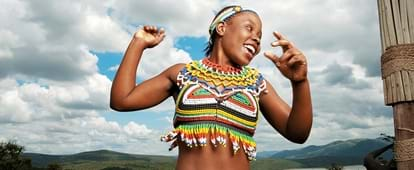By creating an account, I agree to the
Terms of service and Privacy policy
Choose your country and language:
Africa
Americas
Asia Pacific
Europe
AAfrican ancestors continue to give Africans a shared and personal sense of self-affirmation, identity and unfettered belonging. No wonder the legendary Zulu poet Mazisi Kunene is not just known for his epic Shaka the Great, but for another majestic poetry collection, Ancestors and the Sacred Mountain. In African literature, the role of the ancestors features greatly in works ranging from Chinua Achebe’s classic Things Fall Apart, Ola Rotimi’s The Gods Are Not to Blame, and AC Jordan’s The Wrath of the Ancestors. There is no doubt that visits to parts of Africa like Gorée in Senegal and Elmina in Ghana where the transatlantic slave trade was the most severe, are also a way of evoking the world of African ancestors, albeit through traumatic memory and remembering.
It is befitting that today the island of Gorée off the coast of Senegal, opposite Dakar, is a UNESCO World Heritage Site. Touring Gorée, once the world’s biggest slave trade port, helps mankind to ensure that such an inhumane experience “never again” occurs, as the iconic Nelson Mandela taught us all.
TTo this day, kingdoms such as those of the Ashanti in Ghana and the Zulu remain key touchstones in the history of Africans and their reverence for their ancestral forebears. In the songs of the great griots of Mali, Fela Kuti’s rebellious Afrobeat sounds, soukous sounds of the Congo and the migration songs of Southern Africa, ancestors are unashamedly and deeply evoked. How can one forget South African Hugh Masekela’s classic tune, Stimela?
Despite many Africans having embraced religions that are not indigenous to Africans a few centuries back, Africans still attach enormous honour to ancestors. Although today Christianity and Islam are the most dominant religions in Africa, ancestors are still important for most Africans. This is not because Africans are children of a lesser God. Africans continue to grow in part because they too have strong ancestral protectors that have kept them and their spirits defiant across the ages. Without African ancestors, it is impossible to imagine the very idea of Africa and the Africans.
It is not an exaggeration that African ancestors have stubbornly kept Africa and the African Diaspora a potent force in the world. Africans are taking their place in the world. African ancestors confirm loudly and boldly that Africans are not children of bastard trees. They help warn the African child early on not to be reckless with fire or water. They help instil a sense of responsibility to something bigger and richer than material wealth.
Without an indebtedness and humble submission to the will and guidance of the ancestors, most Africans feel lost and are often obliged to conduct various rituals to appease the ancestors. Any African who genuinely values maintaining balance in their life, fears the wrath of the ancestors, and strives to always respect them.

WWhen Africans acknowledge the existence of their ancestors they are celebrating a past that matters and is dear to them. They are valourising the power of their indigenous spirituality and strong connectedness to the land they lost or may still have. Each family member is generally told about their ancestors through the oral tradition—another aspect of the African experience that matters a great deal. When Africans slaughter beasts in their traditional ceremonies, they talk to their ancestors and in the course of doing this, the head of a family would often recite names of that family’s ancestral line. Without writing any information down, this calling of the ancestors helps pass critical knowledge as well as family-specific rituals and values. When a child is told about their ancestors, this is often done by people who care about their family’s lineage and who believe in the cyclical continuum of spiritual life.
Ancestors give Africans a sense of pride, purpose and appreciation of life as it was, as it is and as it will forever be. Ancestors are forever alive in the African world and cosmological view of life. Ancestors connect Africans to their beloved ones, bless their fertility festivals and intervene when spiritual blockages and polluting elements threaten order, happiness, health and life. Africans call on their ancestors when thunderstorms of life threaten to engulf and even annihilate them. For most Africans, holistic metaphysical balance is impossible without the evocation of ancestors. To believe in ancestors is a major tenet of being African. It has always been like that. And let it be so forever. From Cape to Cairo. From Morocco to Madagascar. Long live African ancestors!

AAbout the author
Dr Velaphi Bhedlindaba Mkhize is a poet, an author and an African healer/spiritualist. He is the President and Founder of both Umsamo African Institute and South African Healers Association. Velaphi is a consultant on Umsamo philosophy and is highly regarded as an authority on African traditions, culture, values, ancestral wisdom and African healing. He is a columnist for Isolezwe newspaper based in Durban and Ukhozi FM.
Related articles

